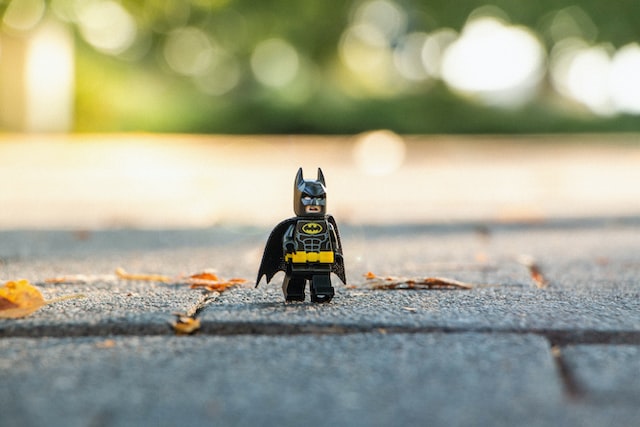A vigilante is someone who takes the law into their own hands, often outside of the justice system. A hero, on the other hand, is someone who helps others and stands up for what’s right, within the law. Both vigilantes and heroes can be considered morally good people. However, vigilantes are often considered to be dangerous because they break the law. Heroes, on the other hand, are generally considered to be helpful and positive members of society.
Definition of a vigilante
In popular culture, a vigilante is often portrayed as a hero who takes the law into their own hands. This can be in response to perceived injustice, or simply because they feel that the authorities are not doing enough to protect citizens. While this may be seen as positive by some, it is important to remember that vigilantism is illegal. Taking the law into one’s own hands can lead to dangerous and sometimes deadly consequences.
A vigilante is defined as a person who punishes criminals outside of the legal system, typically because they believe that the legal system is corrupt or ineffective. They may take justice into their own hands for personal reasons, or because they want to send a message to society about crime. Vigilantes are often motivated by revenge, and their actions are usually violent.
While some people see vigilantes as heroes, others see them as criminals themselves. It is important to remember that vigilantism is against the law, and should not be condoned.
Definition of a hero
The definition of a hero can vary depending on personal and cultural perspectives, but in general, a hero is someone who displays bravery, selflessness, and extraordinary or noble qualities in the face of adversity or challenge. Heroes are often celebrated for their exceptional achievements, acts of kindness, and sacrifice for the greater good.
Heroes can come from all walks of life, including first responders, soldiers, activists, and ordinary people who perform acts of heroism in everyday life. They may be known for their physical prowess or intellectual abilities, or for their moral courage and dedication to serving others.
The idea of a hero has been a prominent part of human history and culture, with many myths, legends, and stories featuring heroes as central figures. Whether in fiction or real life, heroes serve as symbols of hope, inspiration, and resilience in the face of challenges and adversity.
The difference between a vigilante and a hero
The main difference between a vigilante and a hero is that a vigilante often uses violence to achieve their goals, while a hero typically does not. A vigilante may also operate outside of the law, whereas a hero generally works within it.
There are other differences between the two as well. A vigilante is often driven by revenge or a desire to see justice served, while a hero may be motivated by altruism or a sense of duty. Additionally, heroes are usually lauded by society, while vigilantes are often seen as criminals.
Heroes are typically seen as upstanding citizens who use their powers for good, while vigilantes are more often associated with using violence and operating outside of the law.
Is vigilantism wrong?
There is no definitive answer to whether or not vigilantism is wrong. Some people argue that it is an unacceptable form of justice because it bypasses the legal system, while others believe that it can be a necessary and effective way to take action when the law fails to protect citizens.
On one hand, some argue that vigilantism is a dangerous practice because it puts individuals above the law. They argue that vigilantes take the law into their own hands without due process, which can lead to innocent people being punished. Furthermore, they contend that vigilantism can encourage violence and create a climate of fear.
On the other hand, others believe that vigilantism can be a positive force for good. They argue that when the law fails to act, citizens have a right to take matters into their own hands. They also point out that vigilante justice can be swift and effective, often deterring crime before it happens.
Why does vigilante wear a mask in pop culture?
Vigilante justice is a longstanding tradition in many cultures around the world. In pop culture, the vigilante is often represented as a lone wolf who takes the law into their own hands to right wrongs that the legal system has failed to address. This figure is usually masked, both to protect their identity and to add an air of mystery or fear.
The masked vigilante is a popular trope in comics and movies. Characters like Batman, The Punisher, and V for Vendetta have become iconic for their willingness to operate outside the law to fight crime and corruption. For these characters, wearing a mask isn’t just about hiding their identity – it’s about sending a message that they won’t be stopped by anyone or anything.
The masked vigilante is often seen as a dark, brooding figure, but they can also be portrayed as more lighthearted characters like Kick-Ass or Mystery Men. Regardless of how they’re portrayed, the masked vigilante represents our desire for justice when faced with overwhelming odds.
Are there vigilantes in real life?
Yes, there are vigilantes in real life. A vigilante is someone who takes the law into their own hands and dispenses justice outside of the legal system. A hero is someone who saves lives or protects the innocent, but they do so within the confines of the law.
There are many examples of vigilantes throughout history. In ancient times, there were folk heroes like Robin Hood who stole from the rich to give to the poor.
There are also plenty of modern-day vigilantes. Some are motivated by a desire to make their community safer, while others are simply looking for revenge. Either way, vigilantism is not an accepted form of justice in most societies.
Are vigilantes punished?
There is no single answer to whether or not vigilantes are punished. Some people believe that vigilantism is an act of justice and that the vigilante should not be punished. Others believe that vigilantism is a crime and that the vigilante should be punished accordingly. There is no clear consensus on this issue.
What are the types of vigilante?
There are many different types of vigilantes, each with their own motivations and methods. Below are some of the most common types of vigilantes:
- The Punisher – This type of vigilante is driven by a need for revenge. They often have a personal vendetta against someone or something, and use their vigilante skills to get justice.
- The Protector – This type of vigilante sees themselves as the protector of society, often taking on cases that the police cannot or will not solve. They believe that they can make a difference in the world, and take it upon themselves to ensure justice is served.
- The Crusader – Like the protector, this type of vigilante also believes they can make a difference in the world. However, their focus is usually on righting social wrongs rather than solving crimes. They often campaign for change or raise awareness about important issues through their vigilante activities.
- The Lone Wolf – This type of vigilante is motivated by a desire to work alone and outside of the law. They tend to be loners who prefer to operate solo, and generally have no interest in teaming up with anyone else.
- The Masked avenger – This type of vigilante is defined by their desire to remain anonymous and hidden from society. Their activities are usually secretive and done in the shadows, away from public scrutiny.
Was Robin Hood a vigilante?
The most famous example of a vigilante in pop culture is probably Robin Hood. In the stories and movies about him, he is typically portrayed as someone who robs from the rich to give to the poor – outside of the law. He is seen as a hero by many, but also as a criminal by others.
There are many other examples of vigilantes in pop culture, including Batman, The Punisher, and even some characters in children’s cartoons (like Spongebob Squarepants).
Vigilantes exist in real life too, though they are much less common than in fiction. Some people see them as heroes, while others view them as criminals. It’s often a matter of perspective.
What are the qualities of a hero?
Of all the qualities that a hero possesses, there are three that are essential: Courage, Selflessness, and Determination.
Courage is what allows a hero to face danger, even when they are afraid. Selflessness is the quality that drives a hero to put others before themselves, even if it means sacrificing their own safety. And finally, determination is what gives a hero the strength to keep going, even in the face of adversity.
These three qualities are the foundation upon which all heroes stand. Without them, there would be no one to stand up and fight for what is right when evil threatens innocent lives.
Who are some of the most famous vigilantes in pop culture?
(Photo by Yulia Matvienko on Unsplash )

Batman is one of the most famous vigilantes in pop culture. He was created by Bob Kane and Bill Finger, and first appeared in Detective Comics #27 in May 1939. Batman is a wealthy playboy who uses his wealth and skills to fight crime in Gotham City as a masked vigilante. He has no superpowers, but is an expert martial artist and detective. His main weapons are his batarangs and grappling gun.
Who are some of the most famous hero’s in pop culture?
(Photo by Esteban Lopez on Unsplash )

Superman is the last of the three most famous heroes in pop culture. He first appeared in Action Comics #1 in June 1938. Superman is an alien from the planet Krypton who comes to Earth with amazing powers and abilities. He uses these powers to fight crime and protect the innocent.
Featured Image By – Photo by Luke Southern on Unsplash








